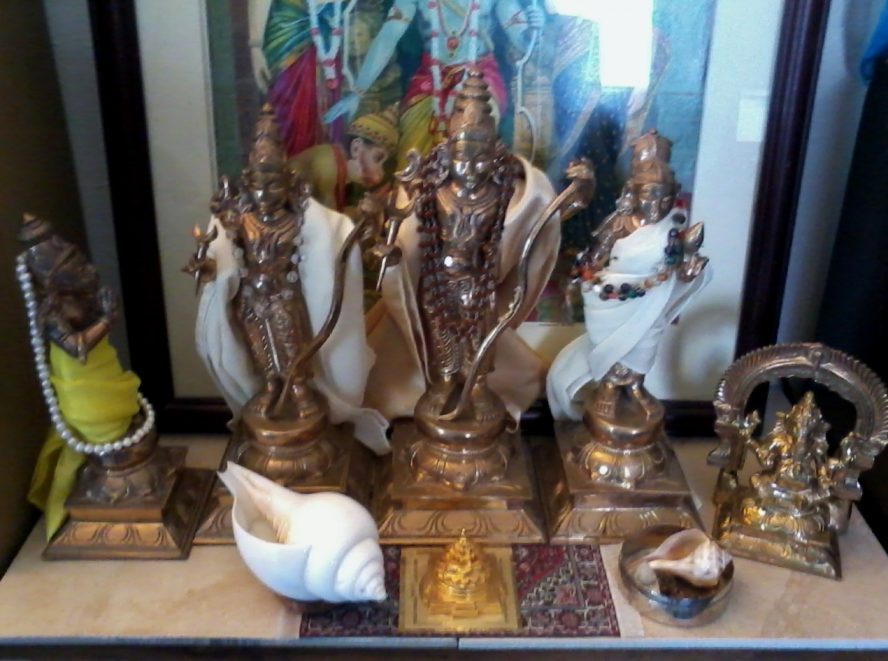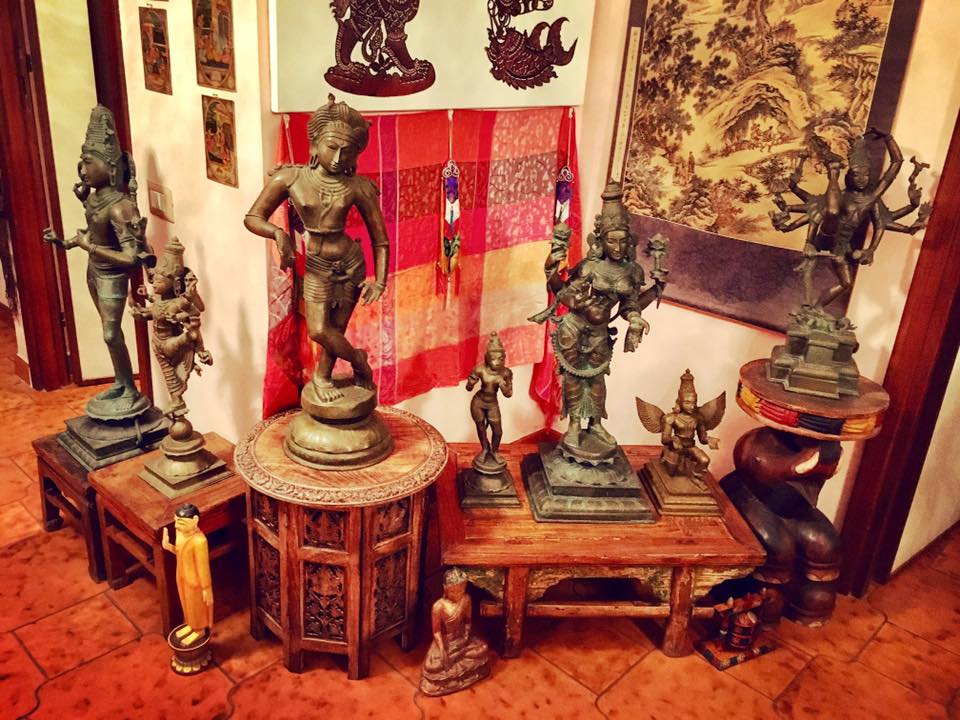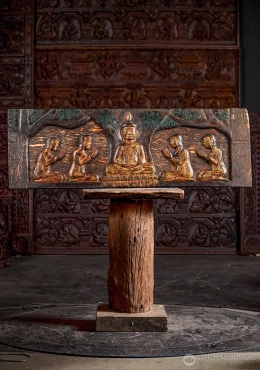In every Hindu home, you will find a small home altar or mandir for the proper worship of the homes murtis. A murti is an embodiment of a Hindu god in any form which is usually a statue of the god or goddesses. The number one rule to remember when constructing dir in the home is that there are no rules, only guidelines. That being said, let’s get to the guidelines!

- Where does a Mandir go in your home?
One should devote an entire room to construct the mandir; however, if this is not available you can simply choose a quiet corner of a room somewhere in the house. According to the Vastu Shastra (traditional Hindu architecture), the home altar room should always be the northeastern most room in the home & the shrine itself should be in the northeastern most corner of that room chosen as this aids with the flow of proper energy or chakra.
- Which Gods Should be in the Home Altar?
The main devas or Gods found in any home are, and by no means limited to Ganesha, Parvati, Shiva, Vishnu, & Krishna. Sometimes households only care for one deity while others prefer to have an entire pantheon. Regardless of how many deities reside in the shrine, there is always one Ishta Deva (a personal favorite). This deity’s area on the shrine is the centermost seat & is always the most elaborate & the best kept. - Three words. Ganesha, Ganesha, & Ganesha!
It is extremely important to note that Ganesha-ji should always have a place in every mandir. It just wouldn’t be a temple without him! Since he is the lord of beginnings, as a rule of thumb he is always placed in the mandir before any other deity.

- What should the Mandir be made from?
A ready-made mandir is ideal to house murtis; however, not everyone has a temple lying about. A small table with a saffron-colored cloth draped over it will do perfectly in its absence. You will also need an incense burner, a diya(oil lamp), a bell, & a small box or jar to hold dakshina (offering of money).
- Cabinet for Supplies
It might not be too bad of an idea to keep a small cabinet or something nearby the mandir to hold all the supplies & things needed to perform pūjā (worship), aarti (lighting of ghee candles), & general upkeep of the mandir.
- Placement of Murtis
The murtis should be placed on this table or in the ready-made mandir facing towards you. Ideally, the murtis should be placed on a smaller platform on top of the table or within the mandir; though, this is not absolutely necessary.
- Clothing
Murtis should also be given some form of clothing, flowers, incense, & other offerings regularly as the murtis are quite literally seen as physical manifestations of god(s).
- Care and Love
It’s imperative to remember to always take care of the mandir, make regular offerings of food, incense, and flowers, and to meditate in front of the mandir in order to ensure the mandir’s general upkeep.







Such nice information provided by you. I really liked reading this. You have deep research for your blog. All the topics or guidelines you defines very well. I would like share a website “www.gmb.ooo” with you,which have amazing collection of Marble Temples, Oxidized Temple, Wall Mounted Temple, Hindu God Idols sculptures,Wooden Mandir and much more. Thanks again.
Thank you very much! I’ll be writing much more content like this in the very near future!
Om Shanti